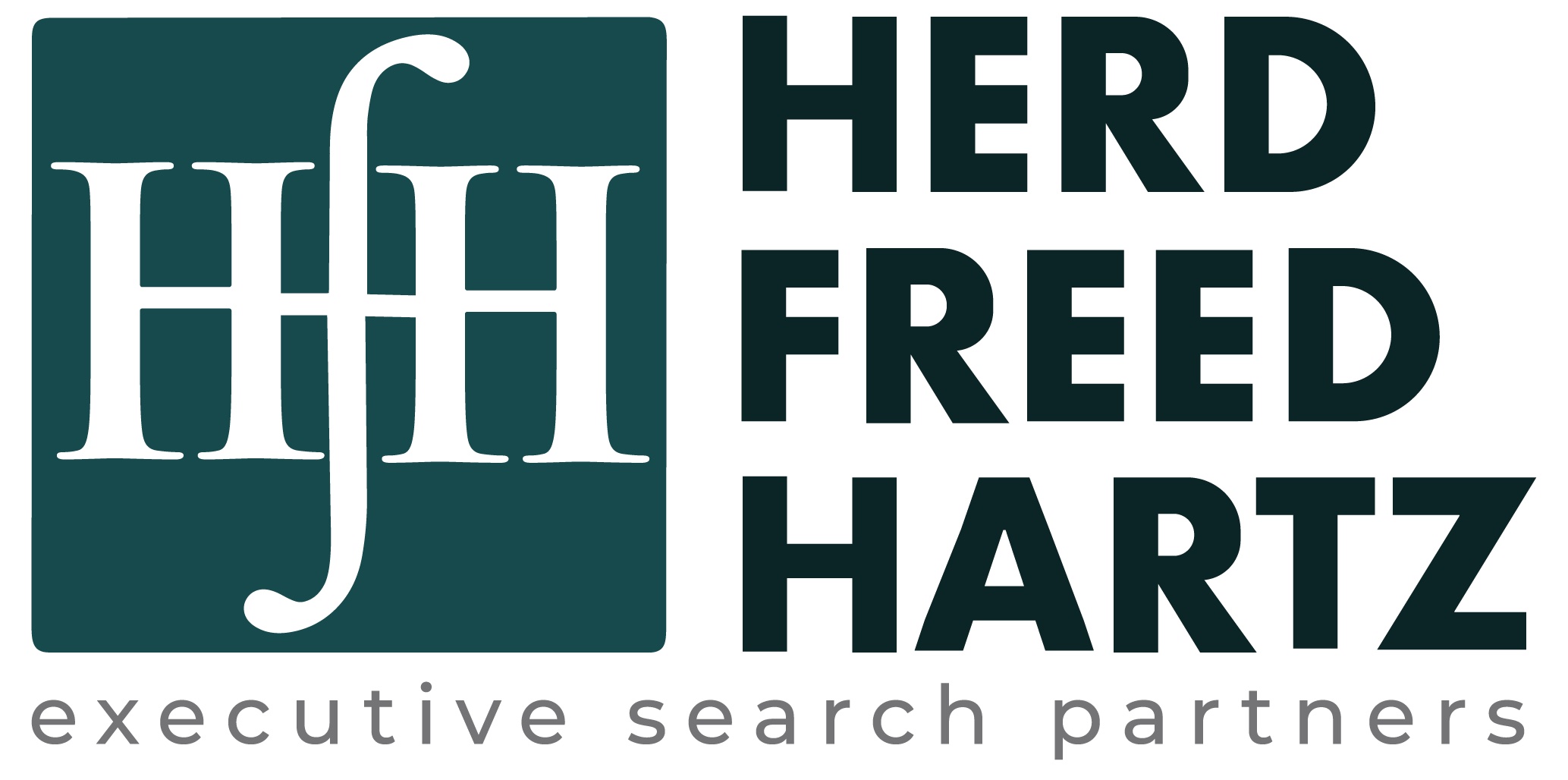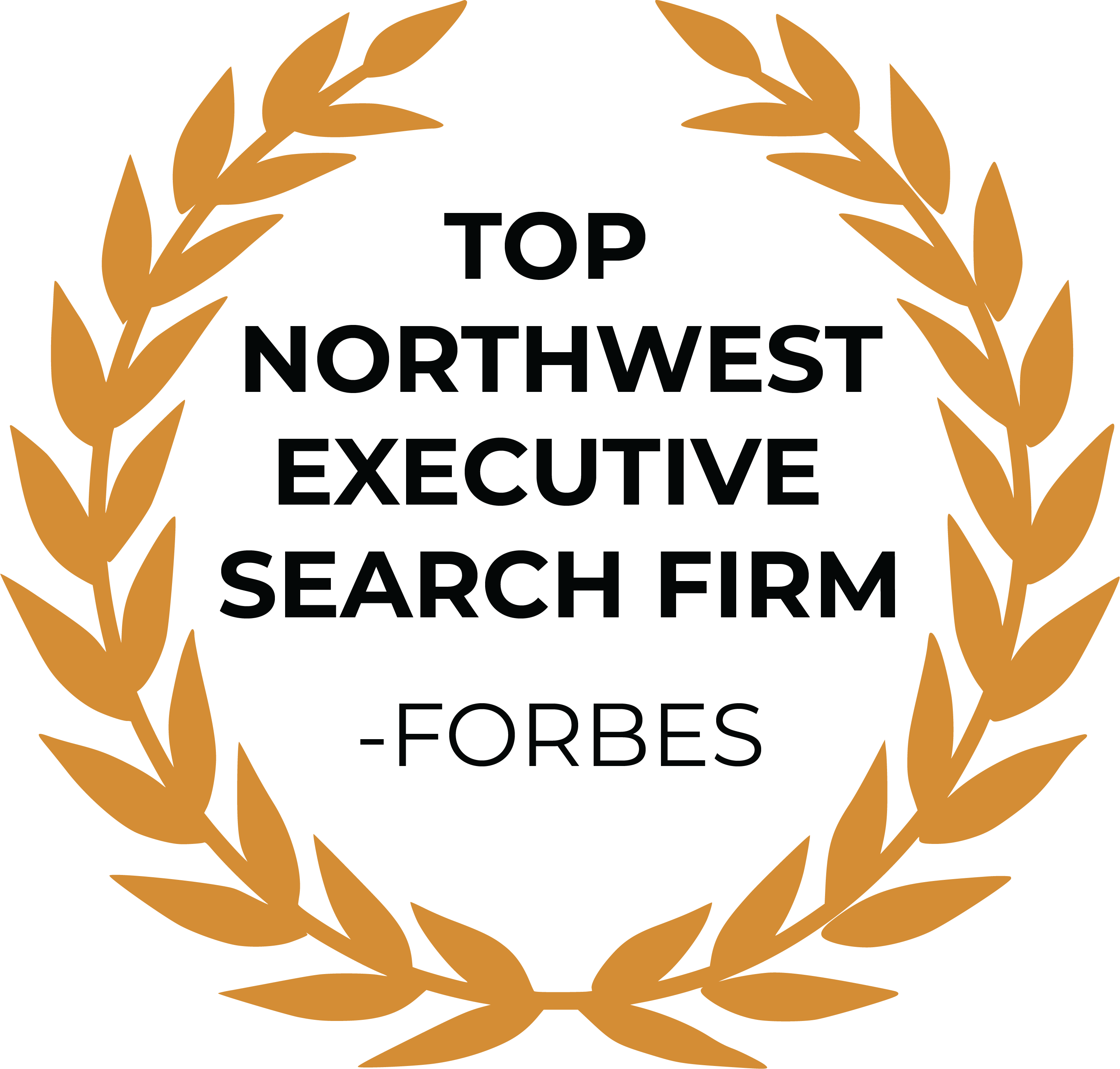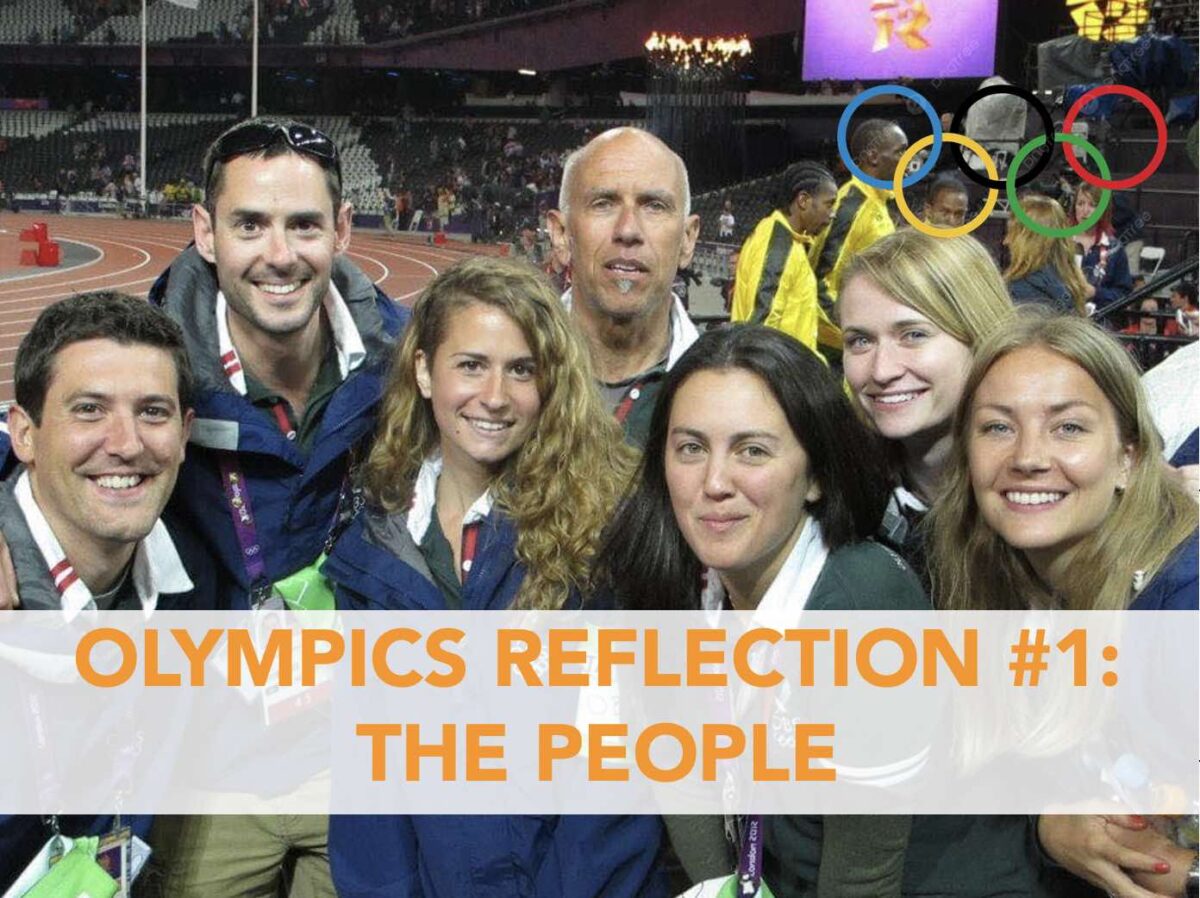With a more stable economy, a generational change in business leadership, and increased competition for highly experienced executives, relying on finding your next executive hire through traditional means like colleague referral or networking won’t necessarily find you the right fit, or fill your role quickly. And as the Northwest becomes a magnet for more technology, consumer, biotech and healthcare businesses, even the most reputable, profitable and successful companies will need to boost their competitiveness to attract top executive talent.
Working with an executive search partner can bring significant benefits not just to your immediate hiring need but also to the ongoing health of your organization. Many companies dismiss this option either because they fear the cost might be prohibitive, or they don’t understand the longer-term value of this particular service. However, partnering with an executive search firm on a key, critical hire for your organization will not only be beneficial in the short term (finding the right fit) but can actually save you a considerable amount of time and money in the long run.
Some key contributing factors to today’s competitive market at the executive level include:
* The Conference Board, in a recent study, reported that the average tenure of S&P 500 company CEOs was 9 years in 2014.
* Temple University pinpointed “the optimal tenure length” for a CEO at 4.8 years, compared with the average at big corporations of 9-10 years.
* Nearly half of new CEOs don’t make it past 18 months, according to the Association of Executive Search and Leadership Consultants (AESC).
* CIO tenure is under five years; according to CIO Executive Coach Larry Bonfante in CIO Insight magazine.
* And a recent CMO longevity study reported in the Wall Street Journal found the average tenure for CMOs fell to 44 months in 2015, down from 48 months in 2014.
In this tight market, companies are considering approaches to hiring that are new to them. Where in the past contingent search or a “friends and family” approach may have worked, many companies are now requiring the boost to executive hiring that retained search can provide.
While repeat customers of retained search (like venture capital and private equity backed companies) are advocates of the results and the process, other companies are unfamiliar with this approach to executive hiring. We’ve found – in talking to board members, executives and HR professionals – that there are some misunderstandings about the role of retained executive search.
Myth #1 – Executive Search is Expensive
The costs of replacing an executive can be exorbitant, and not always from a cash perspective. Especially when nearly half of new CEOs don’t make it past 18 months.
In fact, 53% of failed hires ended up failing because “the hire’s personality was not suited to the role or company,” according to the 2016 McQuaig Global Talent Recruitment Survey of nearly 450 HR professionals from around the globe.
In a world where leadership is critical to business success, the costs of a mismatch in personality, leadership style culture or even geography can, and likely will, lead to underperformance, and can have a ripple effect on the morale of the organization as a whole. By ensuring a rigorous screening process, in the long run you’ll save your company significant pain and cost by finding the right fit, the first time. In addition, most search firms will guarantee their placement for six months to a year, mitigating your risk and costs.
Retained, executive search professionals spend the majority of their time doing research – matching personalities, culture, and business acumen with business leaders, board members, partners and their prospective executives. And we screen your candidates for the role, the company and the area – in the case of relocation.
We do so to maximize fit, and minimize disruptions to the business as new leaders are assimilated into new organizations. We work together to ensure everyone establishes long-term successful relationships throughout their careers.
When you engage with a retained search firm you should expect the following return:
- Intense and exclusive attention to your business, culture, leadership team and fit. The best retained search firms don’t take on too many searches so they can truly be the driver, mentor and strategist for the entire time it takes to fill your role.Executive search partners are advisors on both sides of a successful placement, holding hands with each party and guiding them down the proverbial aisle. Both the candidate and the organization are entering into true partnerships – almost a marriage – with leadership teams, company cultures, even geographical lifestyles. It is the search firm’s responsibility to find the right match for you in every respect.
- It takes time and commitment to develop a deep understanding of a leadership role, successfully identify the relationships any candidate will need to cultivate, and ensure that out-of-state candidates would be comfortable with relocation to the Pacific Northwest.As candidates go through the process, the questions they ask and the emotions they need to go through in order to make their decisions can be very tricky. Your executive search partner will ensure candidates and clients are comfortable and all questions and concerns are addressed in order to move them through the process as efficiently and effectively as possible.
- A highly experienced retained search partner will control and manage the entire process for your team. At Herd Freed Hartz, for example, our executive search professionals have held leadership roles in the corporate world. We understand our clients’ perspectives because we’ve been on their side, sitting in their seats.
- The most successful candidates for your company will be currently employed. They will not be found on job boards, nor will they be thinking about making a career change. Through competent and strategic research and preparation, in conjunction with years of professional experience, the successful retained search executive can convince even the best of the best to consider new, often competitive opportunities.
There’s an art to telling your compelling story in the marketplace in a way that will convince happy executives to consider a move. Combining the best of “old school” search and “new school” search, your retained search partner should be able to deliver great candidates through personal relationships augmented with software based research that can speed results from first touch to final offer and acceptance.
Myth #2 – The Executive Search Fee Model is Inflexible
Retained, executive search firms charge for their connections, their research, candidate vetting, their handholding and their deep understanding of your personality, company culture and even the indescribable needs of your organization and the role you’re filling.
An executive search partner focuses solely on offering the most value for the business during the search, reducing stress on both parties, so that by the time the first highly-qualified candidate is considered, the client and candidate are prepared equally to understand the probability of landing a successful offer.
Most retained search firms offer fixed, time-based payment terms. At Herd Freed Hartz, we are flexible in our payment arrangements. And there’s an agreement up front as to payment milestones. Each milestone is connected to our client’s satisfaction.
We measure our results in a “Time to Candidate” metric– which is our average number of days from search kickoff to when the candidate who was presented to actually got the job (which is what we all care most about). Today, our average Time to Candidate is 37 days.
In other words, we’re happy when our clients are happy. And that can happen pretty quickly – even with a rigorous qualification process.
Myth 3 – You Don’t Need to Understand the Market When You Have an Internal Candidate
Benchmarking your internal candidates against a highly qualified pool of external candidates can protect both your company and your employees from risk.
Legally, every candidate should flow through the same process as you consider new roles. An executive search partner will ensure your internal candidate will be fully vetted for the right background, skills, fit and compensation; and provide comparison to to a selection of external candidates so you are able to make an informed decision.
Bringing an executive into your company and culture is a big decision, and the right executive search firm will allow you to focus on a carefully selected short list of highly qualified individuals that are right for your organization. Hiring a search firm may not be the right decision in every case, but by debunking some of these myths we hope that the idea of engaging with a retained search partner is something well worth exploring when it comes to your key executive hires.
About Herd Freed Hartz
Herd Freed Hartz is the premier executive search firm in the Northwest, with offices in Portland and Seattle. At Herd Freed Hartz, we listen to understand your story. We do a deep dive on your business, the role you’re trying to fill, and help identify the key outcomes to target the ideal candidate. And we’ve successful placed executives in more than 150 businesses around the Northwest – from Zillow to Starbucks to REI to Les Schwab Tires.
We know you can’t find a cultural fit through keyword research. We know how to look beyond the resume to find the right candidates for your business. And we take responsibility to represent your brand extremely well in the marketplace. We help you stand out from your competition, to attract the best prospective candidates, and ensure a great candidate experience throughout the time you connect with them.
We can quickly deliver executive talent to help you win. And as our team delivers great results to your business, we want to earn the right to be your long-term, trusted recruiting partner.
We get the Northwest. We get the importance of personality and cultural fit on both sides of the aisle.
We’d like to help you build a great executive team.
Connect with us – in Portland – 503-535-0713 or Seattle – 206-525-9700.











